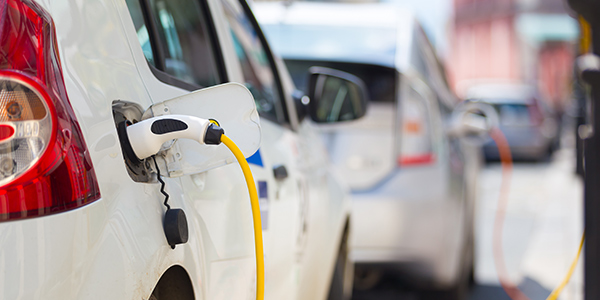If Massachusetts is going to achieve its plan to have entirely electric new car sales in 2035, it needs to take a “hard look” at what low- and moderate-income households can afford in the electric vehicle transition, Daniel Gatti, director of clean transportation policy for the Massachusetts Executive Office of Energy and Environmental Affairs, said Thursday.
The state offers a $2,500 subsidy for an EV purchase, but that is not enough to make the transition financially feasible for people with an annual income of less than $75,000, Gatti said during an EV webinar presented by Green Energy Consumers Alliance.
EVs currently make up less than 5% of new vehicle sales in Massachusetts, according to Gatti. A disproportionately large number of EV sale rebates under the state’s MOR-EV subsidy program are going to Tesla buyers, according to the Center for Sustainable Energy. The program data show that from March 2020 to February 2021, 47% of MOR-EV rebates were for Teslas, which MotorTrend estimates range in price from $39,000 to $81,000.
Janelle London, co-executive director of the West Coast nonprofit Coltura, said that state EV subsidies focus on the purchase of new vehicles and do not “change the fundamentals of car ownership.”
Typically in the U.S., Coltura said, wealthier people buy new vehicles and everyone else buys used vehicles. Policies that call for all new car sales to be EVs do not change that model and instead encourage automakers to compete for business in the EV market, she said.
Last December, Massachusetts joined Connecticut, Rhode Island and Washington, D.C., in the Transportation and Climate Initiative Program, a regional cap and invest program to cut emissions from gasoline and diesel fuel by 26% before 2032. A minimum of 35% of program funds is set aside to benefit overburdened and underserved environmental justice communities. In addition, Gatti estimated that the program will provide up to $300 million for transportation infrastructure upgrades to support EVs.
Last month, the Massachusetts Department of Environmental Protection announced a new initiative to help install publicly available direct current fast charging stations, along with a program to encourage apartment buildings to install charging stations for residents.
“These investments will make it easier for tenants and Massachusetts residents who do not have access to off-street parking to make the jump to an electric vehicle,” Gatti said.
The EV transition, however, has the state energy office thinking carefully about what changes will be necessary for the power grid.
“It is going to require a really modern grid that is capable of doing more complex things than our grid is doing right now,” he said.




